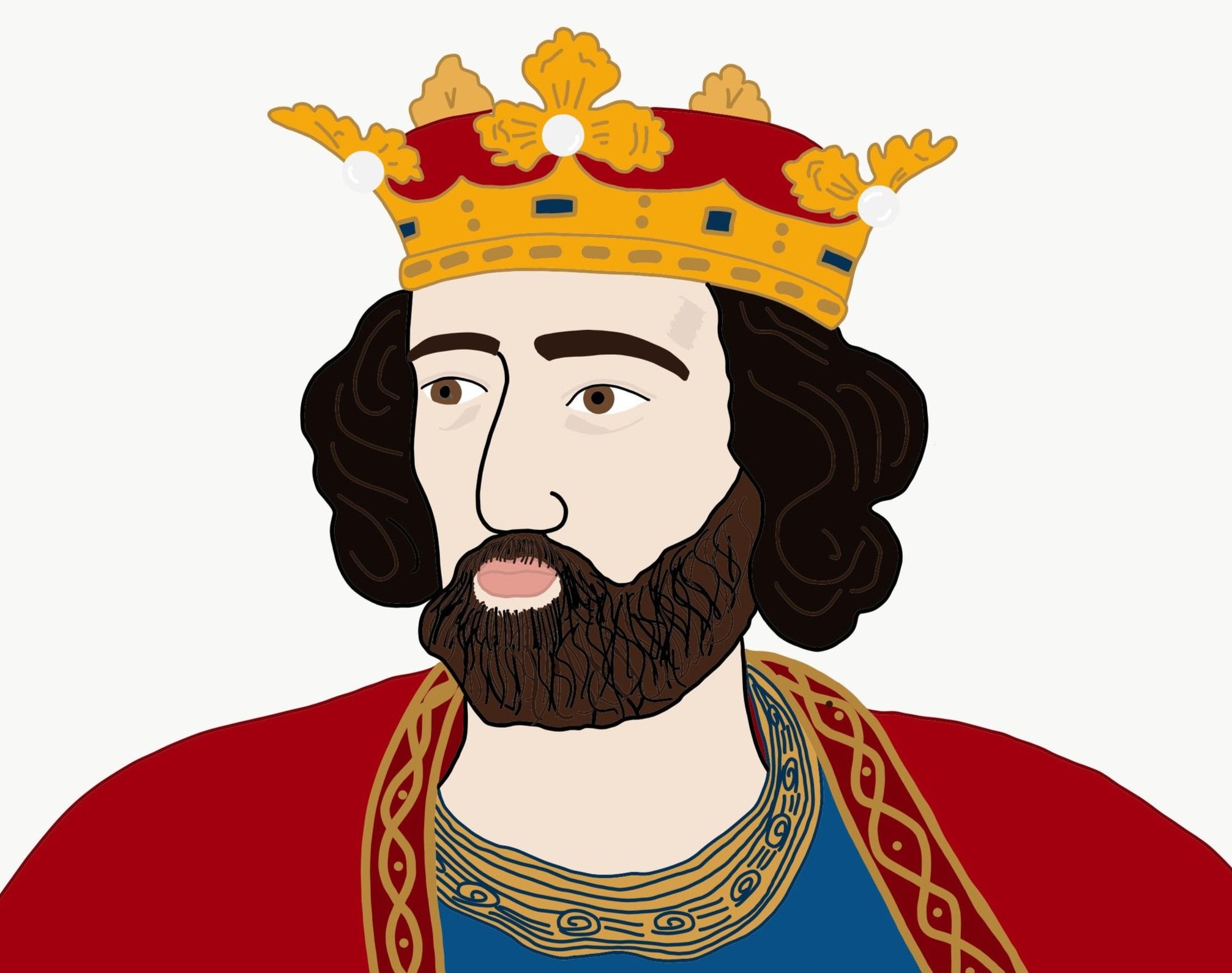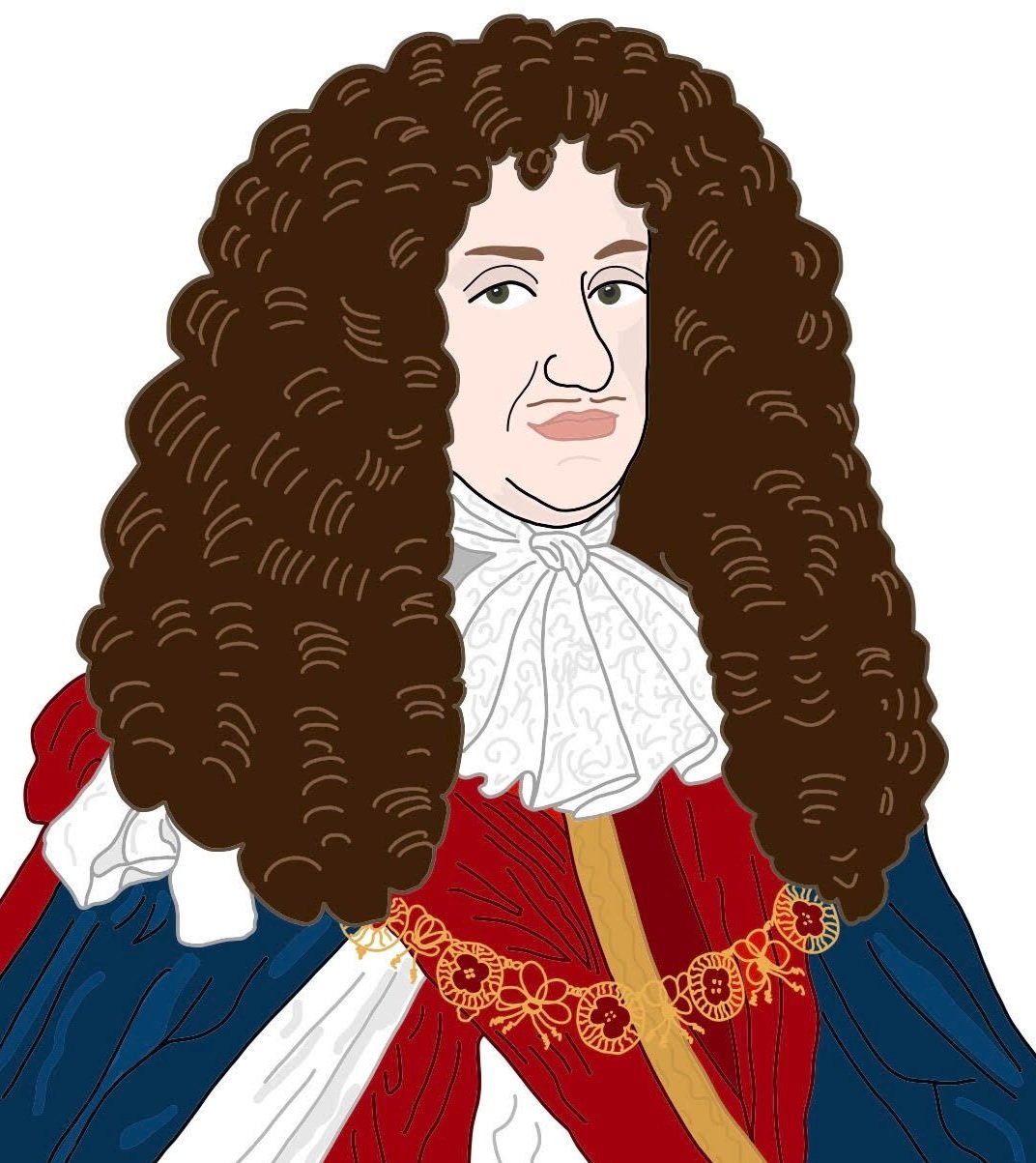August 8th - 14th
“A second atomic bomb; a stolen Stone; victorious Vikings; Britain declares war; Macbeth kills King Duncan; and Pakistan becomes a country...It was a very busy week in history! ”
On 8th August…
King Edward I steals the Stone of Scone
1296 - Following his victory at the Battle of Dunbar, the Stone of Scone or the Stone of Destiny was seized by King Edward I from an abbey near Scone and taken to Westminster. The Stone of Scone was the sacred stone upon which Kings of Scotland were crowned. By taking it Edward I was attempting to stop future Scottish kings from being crowned and trying to assert his own authority over Scotland.
1503 - King James IV of Scotland married Margaret Tudor, the 13-year-old daughter of King Henry VII at Holyrood Abbey in Edinburgh. Their great-grandson James would become the first monarch to reign over both Scotland and England, King James VI and I.
1988 - Princess Beatrice was born in London to Prince Andrew and Sarah Ferguson. Princess Beatrice is currently tenth in line to the throne.
On 9th August…
Edward VII crowned King
1902 - Prince Albert Edward, the eldest son of Queen Victoria was finally crowned King Edward VII, King of Great Britain. The original coronation was meant to take place on 26th June, but shortly beforehand the king had become ill with appendicitis and peritonitis and needed an urgent operation. If he hadn’t postponed the coronation in order to have the operation it was highly likely that he would have died.
2nd Atomic Bomb to hit Japan
1945 - The Japanese city of Nagasaki was hit by an atomic bomb. It was the second atomic bomb to fall on Japan causing severe devastation, death and disease. The death toll of both Nagasaki and Hiroshima, the site of the first bombing three days earlier, exceeded 135,000.
On 10th August…
991 - The Battle of Maldon took place between the Anglo-Saxons and invading Vikings from Norway. The Anglo-Saxon army was led by Earl Brihtnoth, a local leader. His aim was to engage the Vikings in battle, defeat them and stop them from attacking other villages along the coastline. Brihtnoth decided to allow the Vikings safe passage across a river so that they could fight fairly. Unfortunately, he underestimated the Vikings’ power and was killed in the battle. When the Anglo-Saxon army realised their leader had fallen, they all fled into nearby woods leaving the Vikings victorious. The battle has been immortalised in a poem called The Battle of Maldon.
Foundation stone laid at the Royal Observatory in Greenwich
1675 - King Charles II and his royal astronomer, John Flamsteed, laid the foundation stone of the Royal Observatory in Greenwich, London. Within a year John Flamsteed had moved into the Observatory with two servants and had begun making astronomical observations on behalf of the King.
1945 - Following the atomic bombing of Nagasaki and Hiroshima in World War II, Japan announced it was willing to surrender on the condition that the status of its ruler, Emperor Hirohito remained unchanged. This brought a stop to further bombing of Japan, but the surrender had not yet been accepted and the war was not yet over.
On 11th August…
480BCE - King Leonidas of Sparta died in the Battle of Thermopylae against an invading Persian army. With just 300 Spartan men the Spartans fought to the last man standing against an army of thousands in order to protect their country. (Some accounts state that there were about 1,000 Greek soldiers from various states and not just the 300 Spartan soldiers, but against an invading army of about 80,000 the odds were still stacked against them. To stand and fight knowing that your fate is certain death instead of running away is a true show of dedication to your country.)
Edward Baliol victorious at Dupplin Moor
1332 - In Scotland, the Battle of Dupplin Moor took place between Edward Balliol, a contender for the Scottish throne, and the Earl of Mar, who was defending the crown for the young King David II, son of King Robert the Bruce. Despite being outnumbered eight men to one, Edward Balliol won the battle with the help of English forces and was crowned King of Scotland a few days later. But his reign did not last long, and he was deposed within the year. With the help of the English king, Edward III, Edward Balliol managed to reclaim the Scottish throne; it was not without cost. In payment for England’s help, Edward Balliol had to resign his lands and power by acknowledging King Edward III as his over lord.
1897 - English children’s author Enid Blyton was born in London. Some of her most famous stories include tales of the Famous Five a group of friends who solve mysteries. Her books have been translated into over 90 languages around the world.
On 12th August…
30BCE - Cleopatra VII, the last pharaoh of Egypt committed suicide by inviting an asp, a poisonous snake, to bite her. Cleopatra is possibly best known for her relationship with Marc Anthony, the Roman General. After her death, Egypt fell under the rule of the Roman Empire.
King George IV born in London
1762 - King George IV was born in St James’ Palace, London.
Did you know that King George IV was married illegally to a lady called Maria Fitzherbert whilst he was Prince of Wales? He was forced to divorce her because she was a Catholic and persuaded to marry his cousin, Caroline of Brunswick. He only agreed to marry Caroline because the Government had agreed to pay off his debts of around £650,000 (about £78 million in today’s money).
Father of the railways dies
1848 - George Stephenson the English engineer and renowned ‘Father of railways’ died. His most famous steam locomotive the ‘Rocket’, built with his son Robert, was able to pull carriages along at a speed of 36 miles per hour.
1914 - At the beginning of World War I, France and Great Britain declared war on Austria-Hungary at the same time that Austria-Hungary invaded Serbia.
1930 - Clarence Birdseye patented a method for quick freezing food. Before his invention frozen food became mushy and inedible when it thawed. Birdseye’s process allowed food to freeze and thaw and keep its fresh taste. By the time of his death Clarence Birdseye held nearly 300 patents.
On 13th August…
Alfred Hitchcock born in Essex
1899 - Alfred Hitchcock the famous film director of films including Psycho and Rear Window, was born in Leytonstone, Essex.
Lady with the Lamp dies
1910 - Florence Nightingale, the British nurse who improved cleanliness of hospitals and nursing standards during the Crimean war died. She was known as ‘The Lady with the Lamp’ because she continued to care for soldiers throughout the night by lamplight. Florence Nightingale is considered the founder of modern nursing, and despite being a nurse for only a few years of her career, she campaigned tirelessly for better healthcare, wrote several books about nursing, and established a nursing school at St Thomas’s Hospital in London.
On 14th August…
1040 - King Duncan of Scotland was killed by his cousin and rival Macbeth in battle near Elgin, Morayshire near the northern coast of Scotland. Mac Bethad mac Findlaich (Macbeth) became King only to be killed in battle 17 years later by Duncan’s son, Malcolm. (The real story is quite different to Shakespeare’s play.)
John Logie Baird was born in Helensburgh, Scotland
1888 - The Scottish inventor of television, John Logie Baird was born. He first demonstrated television in 1926 in an attic room in central London.
1947 - Following the signing of the Indian Independence Act in July by King George VII, Pakistan, which was once a part of India, became an independent country. The day is celebrated every year in Pakistan and by Pakistani communities around the world.









